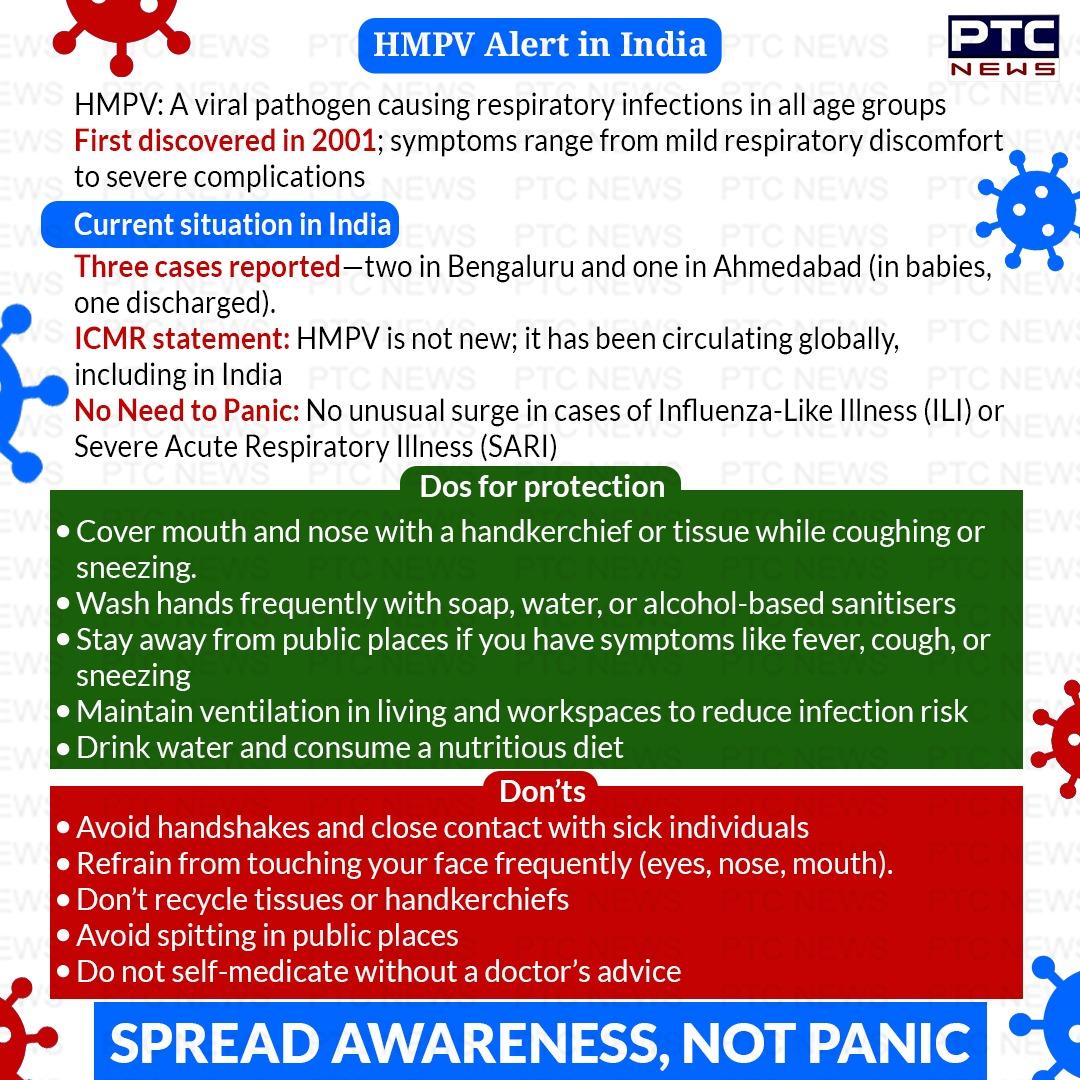

HMPV alert in India: ICMR assures nation is prepared to manage any potential surge in respiratory illnesses
PTC Web Desk: As concerns grow over the spread of Human Metapneumovirus (HMPV) virus, the Indian Council of Medical Research (ICMR) has issued an alert confirming that the virus is circulating globally, including in India. The health body reassured the public that India is adequately prepared to manage any potential surge in respiratory illnesses linked to HMPV.
The announcement follows the detection of two HMPV cases in Bengaluru and one in Gujarat. Health officials confirmed that neither infant nor their families have recent travel histories, ruling out exposure from other regions or countries.

The cases were identified during routine surveillance conducted for various respiratory viral pathogens. The ICMR emphasized that HMPV is not new and has been present globally for years. It also noted that there has been no significant increase in cases of Influenza-Like Illness (ILI) or Severe Acute Respiratory Illness (SARI) in India, based on data from the Integrated Disease Surveillance Programme (IDSP).
In a statement, the ICMR clarified: "HMPV is already in circulation worldwide, including in India, and cases of respiratory illnesses associated with HMPV have been reported in many countries. Current data from ICMR and IDSP do not indicate an unusual rise in respiratory illness cases."
The Union Health Ministry has intensified its surveillance efforts, working closely with health organisations such as the World Health Organization (WHO) and the National Centre for Disease Control (NCDC). A Joint Monitoring Group (JMG) recently convened to assess the HMPV situation. Representatives from the ICMR, WHO, NCDC, and other organisations participated to ensure preparedness and provide guidelines for mitigating risks.
In response to the developments, state governments in Karnataka and Maharashtra have issued preventive measures. In Kerala, Health Minister Veena George urged vulnerable populations, including the elderly and pregnant women, to wear masks in public spaces. She assured citizens there is no immediate cause for alarm.
Human Metapneumovirus, first identified in 2001, belongs to the Pneumoviridae family, which also includes the respiratory Syncytial Virus (RSV). HMPV commonly causes symptoms such as: cough, fever, nasal congestion and shortness of breath.
In severe cases, it can lead to pneumonia or exacerbate existing chronic respiratory conditions. The virus spreads through respiratory droplets, making close contact with infected individuals a primary mode of transmission.
High-risk groups
While HMPV can infect individuals of all ages, certain groups are more vulnerable to severe complications: Young children, older adults and people with weakened immune systems.
The ICMR and state governments have reiterated the importance of adhering to preventive measures, including wearing masks and maintaining hand hygiene, particularly for high-risk groups.
- With inputs from agencies
